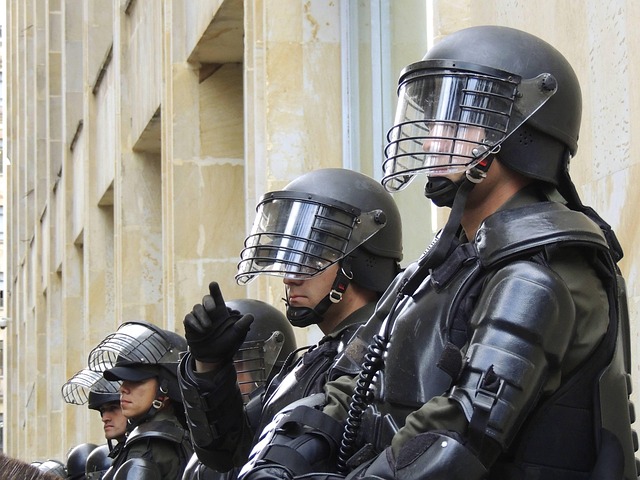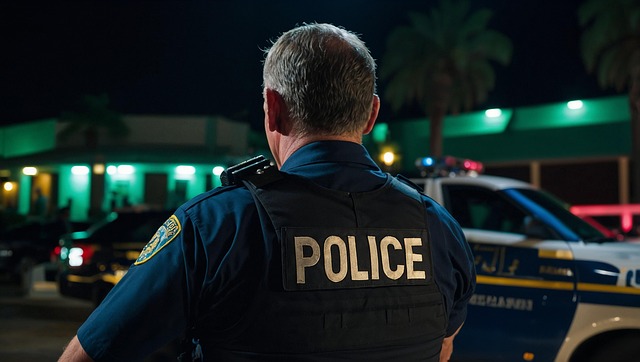The criminal justice system involves a complex interplay of investigators, prosecutors, judges, and juries who collaborate from initial investigations to verdicts. Breach of contract cases, often overlooked but significant, are explored through civil law, revealing impacts on various sectors. These examples highlight the connection between civil and criminal law, particularly in understanding unlawful behavior like fraud. By examining how civil law resolves contractual disputes, legal professionals can strengthen defenses or arguments in both civil and criminal contexts, ensuring justice across jurisdictions with focus on breach of contract case examples in civil law.
Delve into the intricate world of criminal law enforcement, where understanding key roles and processes is paramount. This article explores the multifaceted dynamics, shedding light on how breaches of contract within the criminal justice system manifest through compelling case studies. Furthermore, we examine the ripple effects of civil law on criminal proceedings, providing practical examples of breach of contract cases in the context of civil law. Discover how these intersections shape legal outcomes and foster a deeper comprehension of contractual responsibilities within the justice system.
- Understanding Criminal Law Enforcement: Key Roles and Processes
- Breach of Contract in the Criminal Justice System: Case Studies
- The Impact of Civil Law on Criminal Proceedings: Breach of Contract Examples
Understanding Criminal Law Enforcement: Key Roles and Processes

Criminal law enforcement is a complex system involving multiple stakeholders and processes. At its core, it hinges on key roles such as investigators, prosecutors, and judges who work together to ensure justice. Investigators play a crucial role in gathering evidence through meticulous scrutiny of crime scenes, interviews, and surveillance, which forms the backbone of any criminal case. Prosecutors, armed with legal expertise, then take over, building a robust case based on these findings. They are tasked with presenting evidence effectively during high-stakes cases, like breach of contract scenarios that occasionally spill into criminal law, aiming for winning challenging defense verdicts.
Jury trials, an integral part of the process, offer a democratic approach to justice where impartial jurors deliberate and decide the outcome. This intricate interplay between legal procedures, the expertise of professionals, and the ultimate decision-making power of the jury ensures fairness in administering criminal law. By understanding these roles and processes, we gain insight into how the system operates, from initial investigations to the final verdict, shaping the narrative of justice within the confines of civil and criminal law.
Breach of Contract in the Criminal Justice System: Case Studies

In the complex landscape of criminal justice, breach of contract plays a significant role, often hidden beneath the surface of high-stakes cases. Civil law, however, provides a lens to examine how contractual agreements and their subsequent breaches can impact the system. For instance, consider a scenario where a private security firm contracts with a local government to provide surveillance services but fails to meet agreed-upon standards, leading to a breach. This could result in civil litigation, with the government seeking damages for the failure to protect public safety at all stages of the investigative and enforcement process.
Case studies also reveal breaches occurring within philanthropy and political communities. Non-profit organizations may enter into contracts with donors or beneficiaries, only to face challenges in execution. For example, a charity promising to allocate funds for specific community development projects but diverts resources might face legal repercussions from both donors and the communities affected. These case examples highlight the need for clear contractual agreements and responsible stewardship throughout jury trials, ensuring accountability and transparency within the criminal justice system.
The Impact of Civil Law on Criminal Proceedings: Breach of Contract Examples

The principles of civil law, particularly those related to contracts, significantly influence criminal proceedings. In many jurisdictions, contract law serves as a critical reference point for understanding and interpreting behavior deemed unlawful in criminal cases. For instance, when investigating a crime like fraud, prosecutors often draw parallels to breach of contract cases. A key example is where an individual or corporation enters into an agreement with specific obligations but subsequently fails to fulfill them, intentionally deceiving the other party. Such scenarios echo criminal offenses involving deception and misrepresentation.
Breach of contract case examples in civil law provide valuable insights for criminal lawyers. For high-stakes cases involving corporate clients, understanding these parallels is essential. The dynamics between parties in both civil and criminal contexts share similarities, especially when dealing with intricate agreements. For his clients, knowing how contractual disputes are resolved in civil law can aid in crafting robust defenses or building compelling arguments during trials, ensuring a just outcome, regardless of the legal realm.
In conclusion, this article has explored diverse aspects of criminal law enforcement, from understanding key roles and processes to examining the intricate relationship between civil law and criminal proceedings. The discussion on breach of contract within the criminal justice system through case studies and breach of contract examples in civil law underscores the complex interplay of legal principles. By delving into these topics, we gain valuable insights into how contractual breaches can impact the criminal law enforcement landscape, highlighting the need for meticulous navigation and reform. Remember that, as the field evolves, staying informed about these dynamics is crucial to ensuring justice for all.






